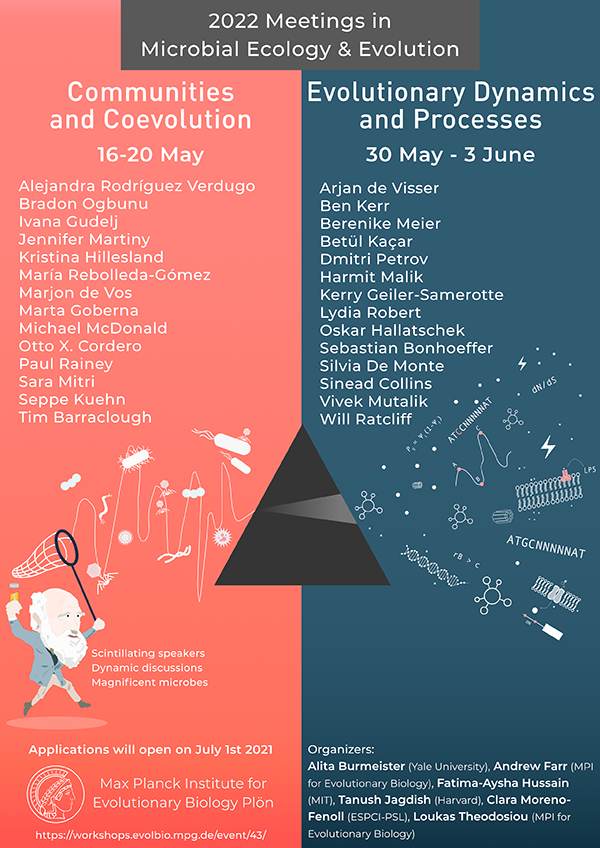Speaker
Description
Authors: Josie Elliott, Bridget Watson, Edze Westra, Tiffany Taylor
CRISPR-Cas is an adaptive bacterial defence system that offers protection against foreign DNA, including phages. This antiviral system allows bacteria to acquire resistance to new infections, providing a powerful weapon in the evolutionary arms races that exist between bacteria and their phage. Despite these systems being widely distributed across bacteria, they are not universal, and the ecological and evolutionary drivers that determine their prevalence remains unknown. One theory is that CRISPR-Cas systems are maintained at low levels in bacterial populations through horizontal gene transfer (HGT) between hosts. However, the adaptive forces that maintain CRISPR-Cas following acquisition and the consequence for antagonistic coevolutionary dynamics between phage and bacteria is an open question. We modelled an HGT event by transferring a synthetic, modular, minimal version of the CRISPR-Cas system from the opportunistic pathogen Pseudomonas aeruginosa to the common soil bacterium Pseudomonas fluorescens, which lacks CRISPR-Cas. The rapid and reciprocal co-evolutionary dynamics between P. fluorescens and its phage phi-2 have become a well-studied model. We use an experimental evolution approach to explore how these carefully poised interactions between P. fluorescens and phi-2 are affected by the introduction of a newly acquired CRISPR-Cas system. This work will ultimately improve our understanding of how short-term changes, such as acquisition of bacterial defence systems like CRISPR-Cas, modulate classic arms race coevolutionary dynamics between bacteria and phage. Furthermore, this offers a model system to determine the long-term evolutionary dynamics that follow a CRISPR-Cas HGT event to a naïve host.

